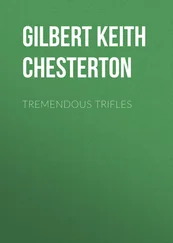Gilbert Chesterton - Manalive
Здесь есть возможность читать онлайн «Gilbert Chesterton - Manalive» весь текст электронной книги совершенно бесплатно (целиком полную версию без сокращений). В некоторых случаях можно слушать аудио, скачать через торрент в формате fb2 и присутствует краткое содержание. Год выпуска: 1912, Издательство: Thomas Nelson and Sons, Жанр: Классическая проза, на английском языке. Описание произведения, (предисловие) а так же отзывы посетителей доступны на портале библиотеки ЛибКат.
- Название:Manalive
- Автор:
- Издательство:Thomas Nelson and Sons
- Жанр:
- Год:1912
- ISBN:нет данных
- Рейтинг книги:3 / 5. Голосов: 1
-
Избранное:Добавить в избранное
- Отзывы:
-
Ваша оценка:
- 60
- 1
- 2
- 3
- 4
- 5
Manalive: краткое содержание, описание и аннотация
Предлагаем к чтению аннотацию, описание, краткое содержание или предисловие (зависит от того, что написал сам автор книги «Manalive»). Если вы не нашли необходимую информацию о книге — напишите в комментариях, мы постараемся отыскать её.
Manalive — читать онлайн бесплатно полную книгу (весь текст) целиком
Ниже представлен текст книги, разбитый по страницам. Система сохранения места последней прочитанной страницы, позволяет с удобством читать онлайн бесплатно книгу «Manalive», без необходимости каждый раз заново искать на чём Вы остановились. Поставьте закладку, и сможете в любой момент перейти на страницу, на которой закончили чтение.
Интервал:
Закладка:
So saying, he handed across to Michael a cutting from the “Maidenhead Gazette” which distinctly recorded the marriage of the daughter of a “coach,” a tutor well known in the place, to Mr. Innocent Smith, late of Brakespeare College, Cambridge.
When Dr. Pym resumed it was realized that his face had grown at once both tragic and triumphant.
“I pause upon this pre-liminary fact,” he said seriously, “because this fact alone would give us the victory, were we aspiring after victory and not after truth. As far as the personal and domestic problem holds us, that problem is solved. Dr. Warner and I entered this house at an instant of highly emotional diff’culty. England’s Warner has entered many houses to save human kind from sickness; this time he entered to save an innocent lady from a walking pestilence. Smith was just about to carry away a young girl from this house; his cab and bag were at the very door. He had told her she was going to await the marriage license at the house of his aunt. That aunt,” continued Cyrus Pym, his face darkening grandly–“that visionary aunt had been the dancing will-o’-the-wisp who had led many a high-souled maiden to her doom. Into how many virginal ears has he whispered that holy word? When he said ‘aunt’ there glowed about her all the merriment and high morality of the Anglo-Saxon home. Kettles began to hum, pussy cats to purr, in that very wild cab that was being driven to destruction.”
Inglewood looked up, to find, to his astonishment (as many another denizen of the eastern hemisphere has found), that the American was not only perfectly serious, but was really eloquent and affecting– when the difference of the hemispheres was adjusted.
“It is therefore atrociously evident that the man Smith has at least represented himself to one innocent female of this house as an eligible bachelor, being, in fact, a married man. I agree with my colleague, Mr. Gould, that no other crime could approximate to this. As to whether what our ancestors called purity has any ultimate ethical value indeed, science hesitates with a high, proud hesitation. But what hesitation can there be about the baseness of a citizen who ventures, by brutal experiments upon living females, to anticipate the verdict of science on such a point?
“The woman mentioned by Curate Percy as living with Smith in Highbury may or may not be the same as the lady he married in Maidenhead. If one short sweet spell of constancy and heart repose interrupted the plunging torrent of his profligate life, we will not deprive him of that long past possibility. After that conjectural date, alas, he seems to have plunged deeper and deeper into the shaking quagmires of infidelity and shame.”
Dr. Pym closed his eyes, but the unfortunate fact that there was no more light left this familiar signal without its full and proper moral effect. After a pause, which almost partook of the character of prayer, he continued.
“The first instance of the accused’s repeated and irregular nuptials,” he exclaimed, “comes from Lady Bullingdon, who expresses herself with the high haughtiness which must be excused in those who look out upon all mankind from the turrets of a Norman and ancestral keep. The communication she has sent to us runs as follows:–
“Lady Bullingdon recalls the painful incident to which reference is made, and has no desire to deal with it in detail. The girl Polly Green was a perfectly adequate dressmaker, and lived in the village for about two years. Her unattached condition was bad for her as well as for the general morality of the village. Lady Bullingdon, therefore, allowed it to be understood that she favoured the marriage of the young woman. The villagers, naturally wishing to oblige Lady Bullingdon, came forward in several cases; and all would have been well had it not been for the deplorable eccentricity or depravity of the girl Green herself. Lady Bullingdon supposes that where there is a village there must be a village idiot, and in her village, it seems, there was one of these wretched creatures. Lady Bullingdon only saw him once, and she is quite aware that it is really difficult to distinguish between actual idiots and the ordinary heavy type of the rural lower classes. She noticed, however, the startling smallness of his head in comparison to the rest of his body; and, indeed, the fact of his having appeared upon election day wearing the rosette of both the two opposing parties appears to Lady Bullingdon to put the matter quite beyond doubt. Lady Bullingdon was astounded to learn that this afflicted being had put himself forward as one of the suitors of the girl in question. Lady Bullingdon’s nephew interviewed the wretch upon the point, telling him that he was a ‘donkey’ to dream of such a thing, and actually received, along with an imbecile grin, the answer that donkeys generally go after carrots. But Lady Bullingdon was yet further amazed to find the unhappy girl inclined to accept this monstrous proposal, though she was actually asked in marriage by Garth, the undertaker, a man in a far superior position to her own. Lady Bullingdon could not, of course, countenance such an arrangement for a moment, and the two unhappy persons escaped for a clandestine marriage. Lady Bullingdon cannot exactly recall the man’s name, but thinks it was Smith. He was always called in the village the Innocent. Later, Lady Bullingdon believes he murdered Green in a mental outbreak.”
“The next communication,” proceeded Pym, “is more conspicuous for brevity, but I am of the opinion that it will adequately convey the upshot. It is dated from the offices of Messrs. Hanbury and Bootle, publishers, and is as follows:–
“Sir,–Yrs. rcd. and conts. noted. Rumour re typewriter possibly refers to a Miss Blake or similar name, left here nine years ago to marry an organ-grinder. Case was undoubtedly curious, and attracted police attention. Girl worked excellently till about Oct. 1907, when apparently went mad. Record was written at the time, part of which I enclose.– Yrs., etc., W. Trip.”
“The fuller statement runs as follows:–
“On October 12 a letter was sent from this office to Messrs. Bernard and Juke, bookbinders. Opened by Mr. Juke, it was found to contain the following: ‘Sir, our Mr. Trip will call at 3, as we wish to know whether it is really decided 00000073bb!!!!!xy.’ To this Mr. Juke, a person of a playful mind, returned the answer: ‘Sir, I am in a position to give it as my most decided opinion that it is not really decided that 00000073bb!!!!!xy.’ Yrs., etc.,
‘J. Juke.’“On receiving this extraordinary reply, our Mr. Trip asked for the original letter sent from him, and found that the typewriter had indeed substituted these demented hieroglyphics for the sentences really dictated to her. Our Mr. Trip interviewed the girl, fearing that she was in an unbalanced state, and was not much reassured when she merely remarked that she always went like that when she heard the barrel organ. Becoming yet more hysterical and extravagant, she made a series of most improbable statements–as, that she was engaged to the barrel-organ man, that he was in the habit of serenading her on that instrument, that she was in the habit of playing back to him upon the typewriter (in the style of King Richard and Blondel), and that the organ man’s musical ear was so exquisite and his adoration of herself so ardent that he could detect the note of the different letters on the machine, and was enraptured by them as by a melody. To all these statements of course our Mr. Trip and the rest of us only paid that sort of assent that is paid to persons who must as quickly as possible be put in the charge of their relations. But on our conducting the lady downstairs, her story received the most startling and even exasperating confirmation; for the organ-grinder, an enormous man with a small head and manifestly a fellow-lunatic, had pushed his barrel organ in at the office doors like a battering-ram, and was boisterously demanding his alleged fiancee. When I myself came on the scene he was flinging his great, ape-like arms about and reciting a poem to her. But we were used to lunatics coming and reciting poems in our office, and we were not quite prepared for what followed. The actual verse he uttered began, I think,
Читать дальшеИнтервал:
Закладка:
Похожие книги на «Manalive»
Представляем Вашему вниманию похожие книги на «Manalive» списком для выбора. Мы отобрали схожую по названию и смыслу литературу в надежде предоставить читателям больше вариантов отыскать новые, интересные, ещё непрочитанные произведения.
Обсуждение, отзывы о книге «Manalive» и просто собственные мнения читателей. Оставьте ваши комментарии, напишите, что Вы думаете о произведении, его смысле или главных героях. Укажите что конкретно понравилось, а что нет, и почему Вы так считаете.









